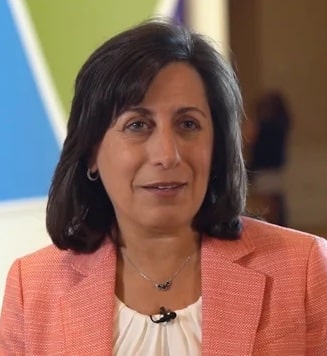
The biggest challenge for the financial industry in the coming year is the regulatory agenda, according to Debra Guarino, Managing Director of Pershing Operations and Trading Services at BNY Mellon.

The industry is faced with the move to T+1, which is tremendous and happening in May of 2024, but there are many other proposals that have either been approved, out for comment, and being reviewed, she said.
“It is really going to be about how we layer all those things on top of each other,” Guarino said at the SIFMA’s the Heard at Ops series.
“We must be very deliberate about how we deliver all of it, in a compliant fashion, and in time for when the rule will become effective without pulling back on anything else that we are doing,” she said.
The only way the industry is going to be successful is to “pause, evaluate, and take the time you need to do that analysis before we start marching forward with coding and changing our processes upfront”.
“Make sure that if one could impact the other, that we are looking at them together – collectively – and making the right decisions,” she said.
According to Guarino, the role of operations is changing.
She said that there has been a shift in the talent pool and the types of skills that they’re looking for in people.
“In the past, we looked at a certain degree – whether it is accounting, finance, or business – and people with certain experience: what firms did they work at that look like ours?,” she said.
That has completely shifted in this faster environment, she said, adding that with the increased reliance on faster technologies and new technologies, that skillset suddenly has changed.
“Now we are open to candidates who come in from non-traditional financial services roles, and they’re adding value very quickly when they walk in the door,” she said.
It is a nice blend of legacy employees and new employees, and you mix those two together, she added.
The experience that we have from the traditional ops person who may be with your firm for 10 or 15 years and some new thought process – a new way of doing things – intertwined with that will make us stronger and more efficient, Guarino said.
She added that the other thing with new talent is their expectations, which have shifted due to the pandemic and people spending time learning what they like, what they don’t like and what they value.
“As leaders, we are going to be challenged with: How do we keep these associates engaged? How do we help them move along on their path to where they want to go?,” she said.
“They are making us better leaders by increasing the talent pool that we are pulling in,” she added.
When asked about some of the priorities for this year, Guarino said: “For this year, it is about how do we do more with less – whether it’s less time, less people, less resources.”
The transition to T+1 is a part of that and they are looking at all our processes leading up to that, she said.
“Another part of it is making sure that we have a good plan in place for shifting resources that includes cross-training and upskilling,” she said.






